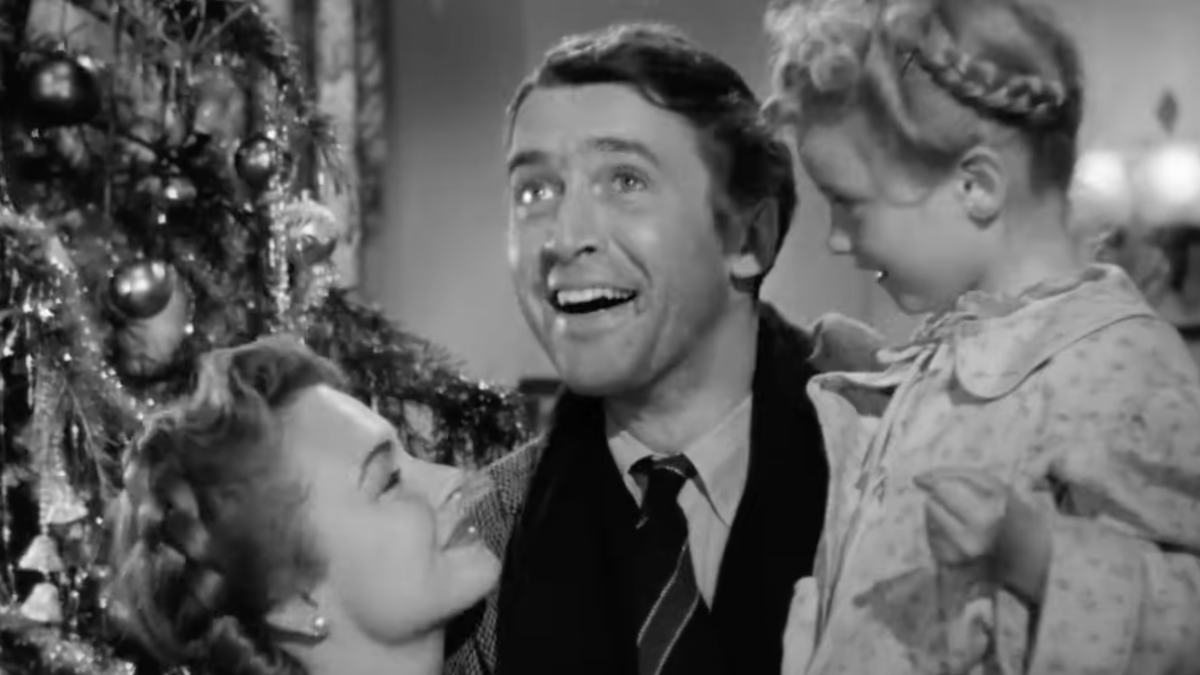Originally Authored at TheFederalist.com

In November, the American people sent a trifecta of Republican power to D.C., and in January we will turn the page to a new year and a new chapter of American leadership. In the meantime of Advent and Christmastide, Frank Capra’s beloved Christmas film “It’s A Wonderful Life” (1946) might have something to say about why Donald Trump is headed back to the White House.
In the unlikely persona of Donald Trump, the American “rabble” have found an unlikely hero who stands up on their behalf to remind the “warped, frustrated” old men inside the Beltway who it is that does most of the living and dying in this country.
The protagonist of “It’s A Wonderful Life,” George Bailey, is unable to enlist in the Army during World War II due to his loss of hearing in an ear that became infected after he saved his little brother from drowning in an icy pond. That little brother, Harry, went on to be a fighter pilot and earn the Congressional Medal of Honor for shooting down a Kamikaze plane that was about to careen into an American transport ship. George stays home and, as the narrator of the movie says, “George fought the Battle of Bedford Falls,” which is the fictional town where the now classic Christmas movie is set.
The ambitious young man was set to leave for college when his father unexpectedly dies, and George must remain at home to take over the family business: Bailey Brothers Building and Loan. George inherits his father’s longstanding feud with Henry Potter, a millionaire who attempts to buy or take control of everything in the quaint little town.
If I were a pundit on CNN or MSNBC, I would be obligated to use this article as an opportunity to portray Donald Trump as Henry F. Potter, “the richest and meanest man in town.” Yet the fact that both men are wealthy businessmen is where the similarities end. In reality, Henry Potter is the kind of person that Donald Trump’s political career has most infuriated.
Potter cleverly maneuvers himself into positions of power and boasts an open disdain for “the rabble” the Bailey family loves. He criticizes George’s father as a man of “high ideals … without common sense,” an all too familiar sentiment to modern Americans who “cling to guns or religion,” in the words of President Barack Obama. There is a scene in the movie where Potter grunts dismissively as he reviews draft applications, selects young men for war, and potentially sends them to their deaths.
The Henry Potters of the present day are the wealthy globalist elites who spent decades looking down their noses and out the windows of their private jets at the roofs of American homes built and inhabited by men they will send to fight in endless wars.
If anything, President Trump is more like George Bailey than Henry Potter. George’s dream was to “build things, design new buildings, plan modern cities,” but he gave that up to keep the Bailey Brothers Building and Loan alive. George stood in the face of Potter — an image of the childless, globalist establishment — and reminded him that “this rabble you’re talking about —they do most of the working and paying and living and dying in this community.”
In 2016, and again in 2024, this George Bailey-esque populist sentiment swept through the Republican Party and sent Donald Trump to Pennsylvania Avenue, and a Republican majority to both chambers of Congress. The millions of Americans who do most of the working and paying and living and dying are tired of sending their sons to fight in meaningless wars overseas. They are tired of Bedford Falls being flooded with opioids, crime, and filth coming across the southern border. They are tired of taxes and inflation that make homeownership a distant dream.
As George Bailey put it, “Is it too much to have them work and pay and live and die in a couple of decent rooms and a bath?”
The rabble — or the “deplorables,” take your pick — have found an unlikely champion in Donald Trump. In an odd reversal of roles, ordinary Americans see a Manhattan billionaire as their greatest political champion. Ever since his descent down the escalator and into political life, Trump has had the uncanny ability to always have his finger on the pulse of the American economy: rural blue-collar workers. It is remarkable that a billionaire with his name in golden letters on a Manhattan skyscraper has captured the hearts of voters in the Appalachian town where I grew up.
From my 91-year-old great-grandmother to my high school friends who breed show lambs, Donald Trump is their George Bailey who stands up to the leftist, coastal elites who want to permanently alter their way of life.
The American populace is composed of millions of George Baileys, fighting innumerable Battles of Bedford Falls. My hometown sheriff and prosecutor are certainly George Baileys of a sort, as they tirelessly work to keep drugs and crime out of our community. The young husband who works 60 hours a week to support his family in this less-than-ideal economy certainly falls into that category as well. The small business owner trying desperately to stay afloat amidst a sea of regulations is another George Bailey.
These millions of ordinary Americans have turned the Republican Party into the party of George Bailey.
Bradley Haley is a student at Hillsdale College and a member of Forge Leadership Network. He is also the founder of New Guard Press, an outlet for young intellectual conservatives.